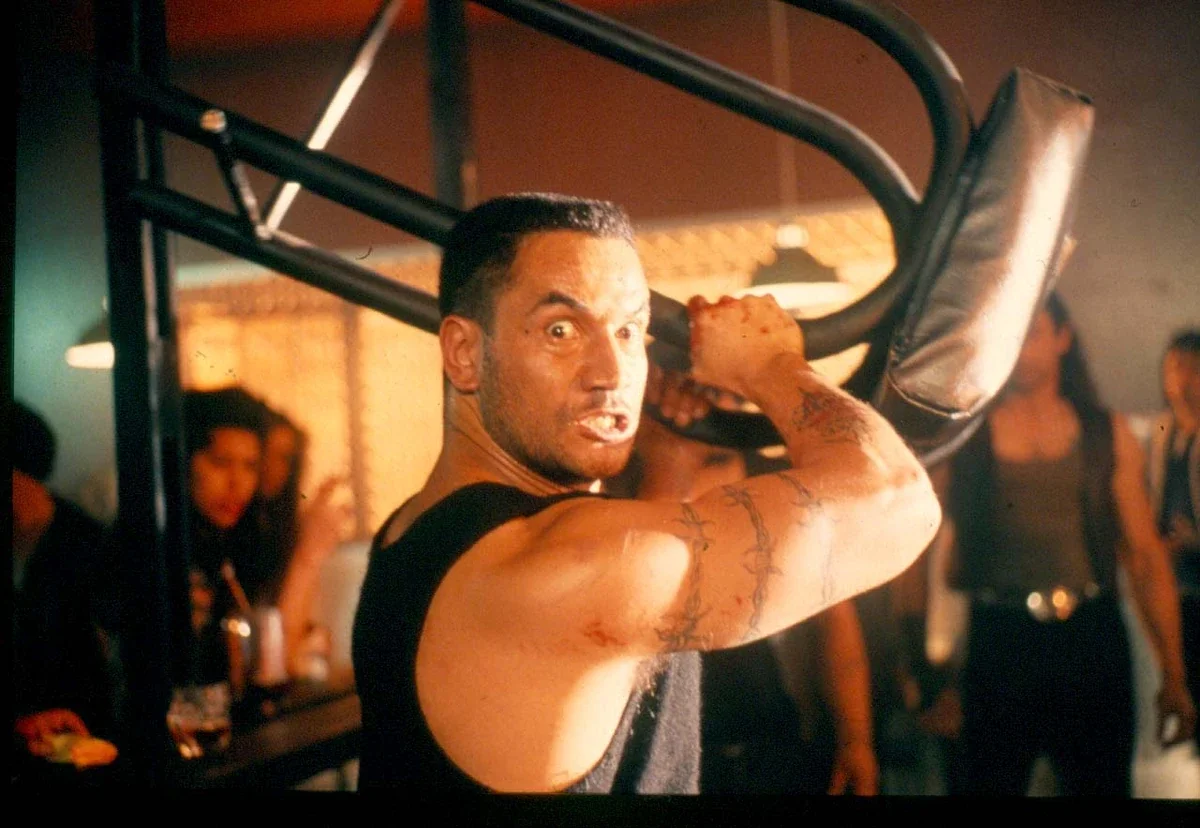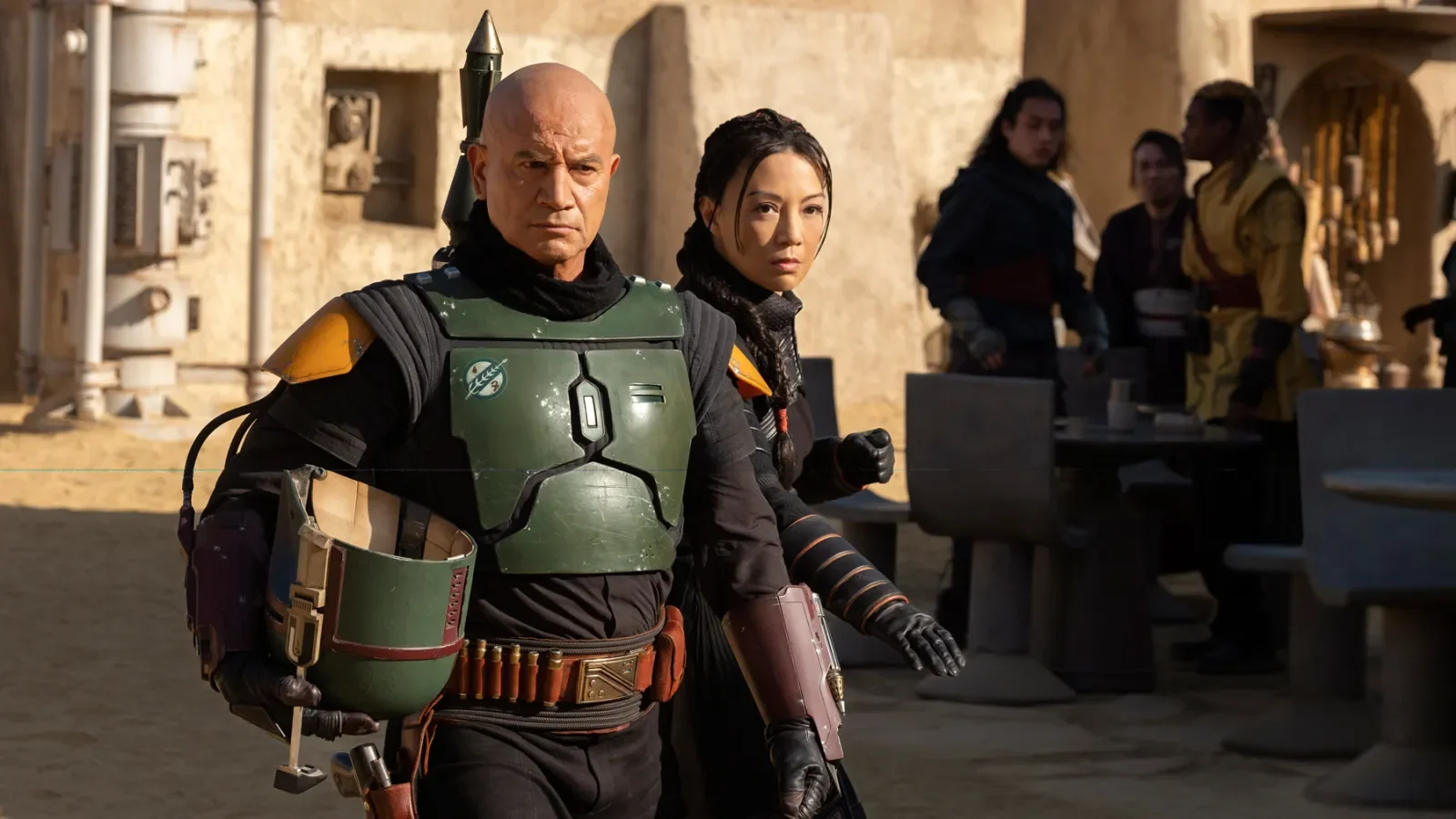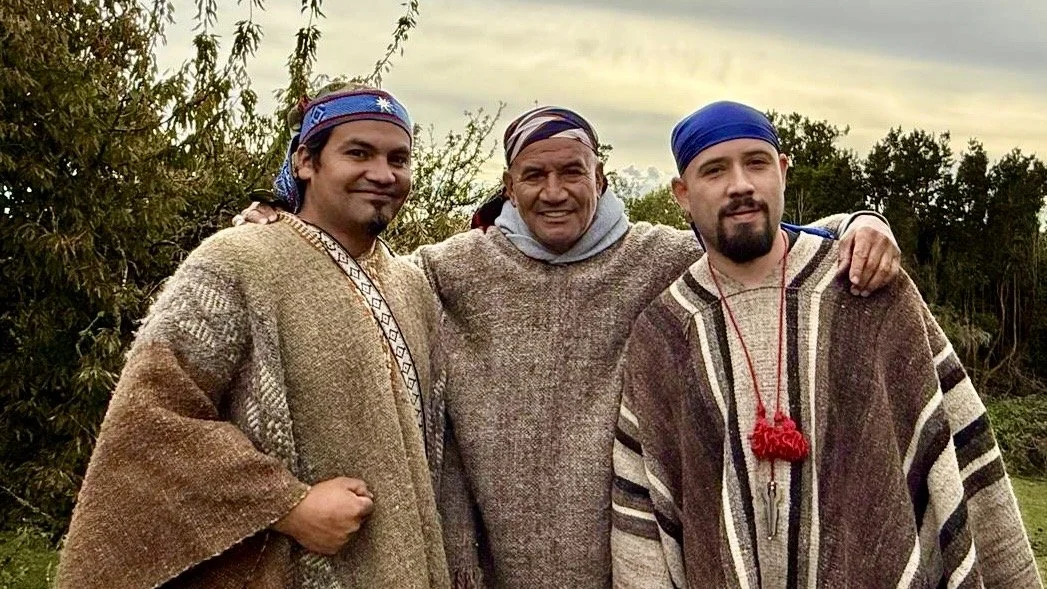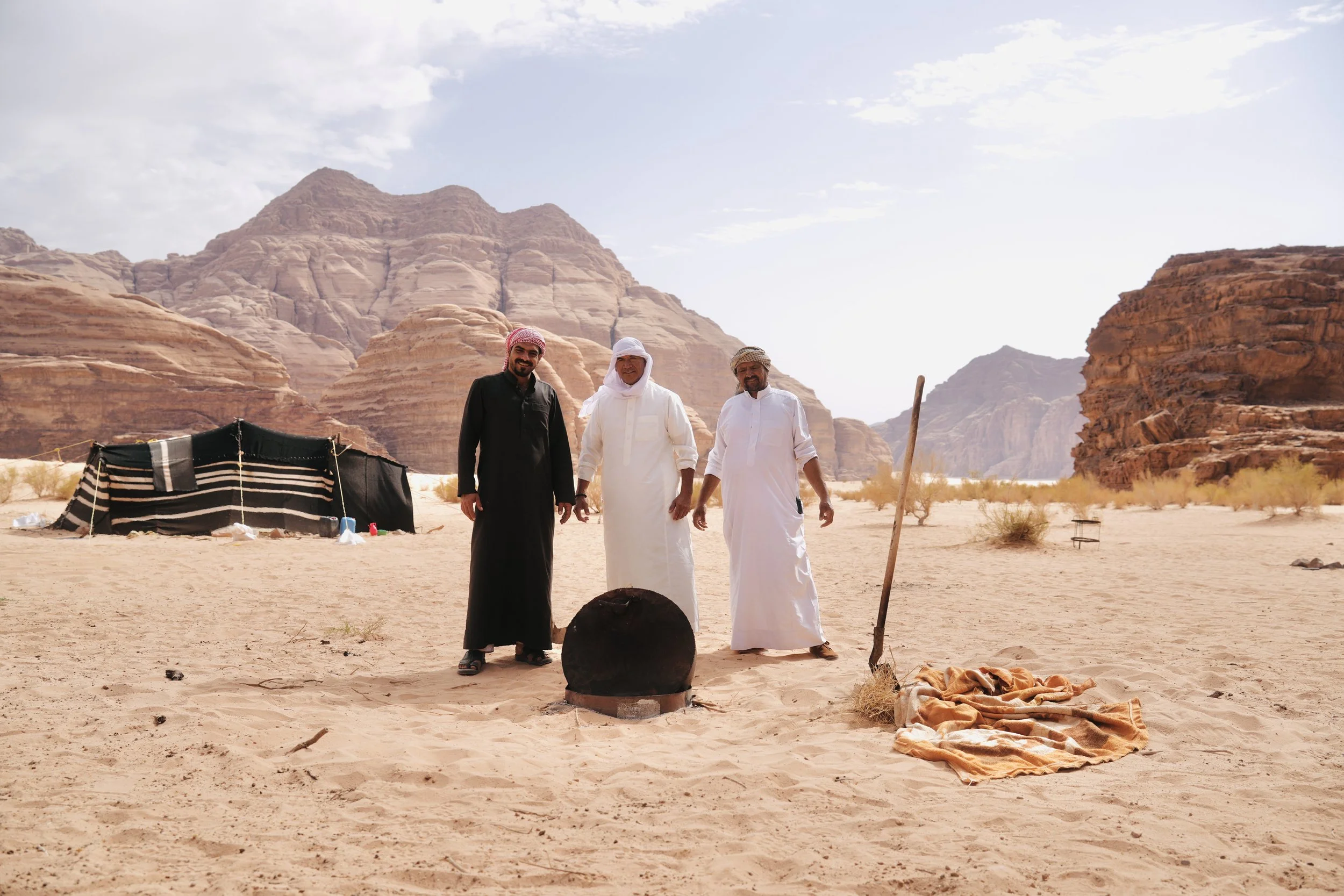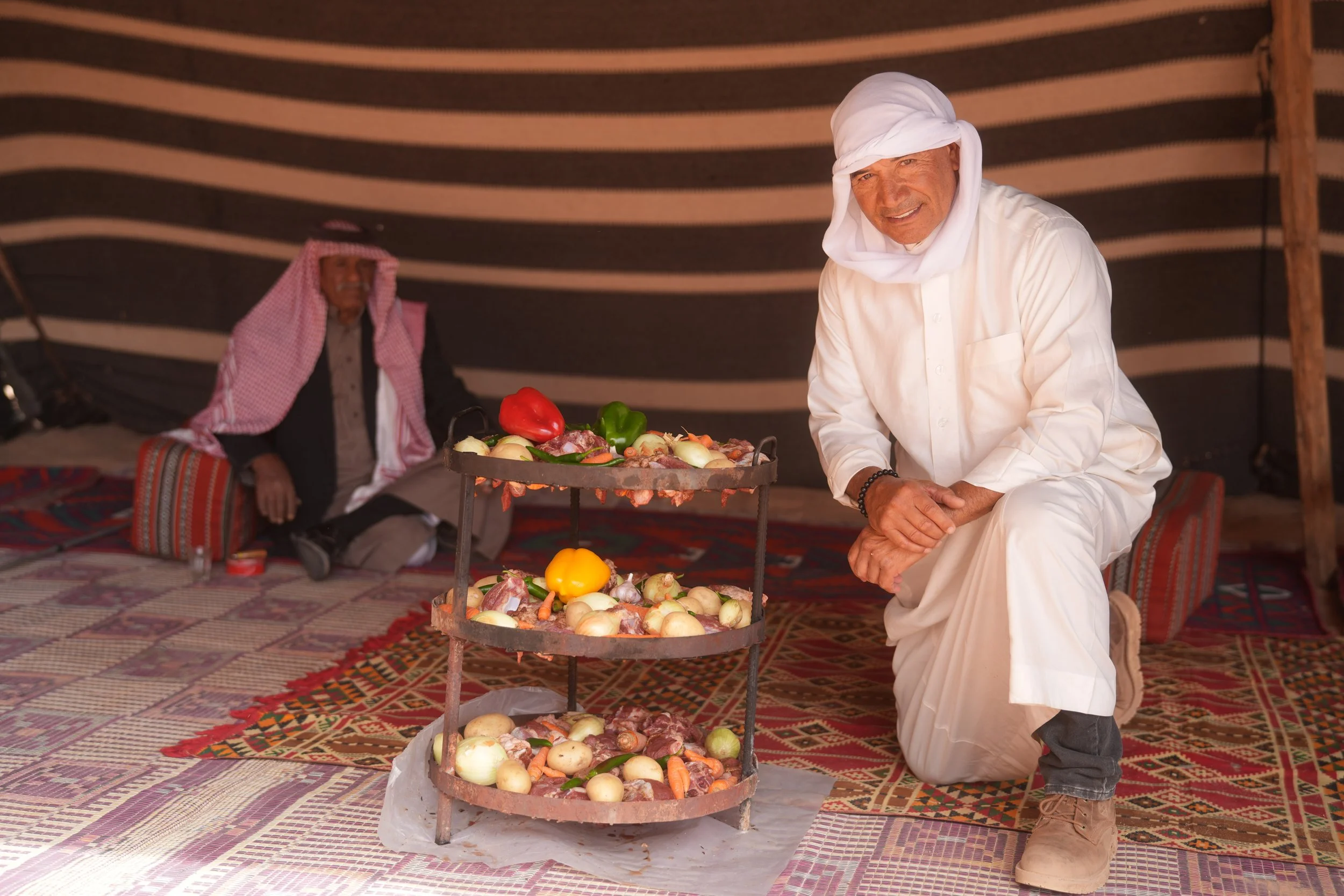Fire and earth
He’s been a Fett, a Mus and a Ropata, but now Temuera Morrison is stepping out from behind the characters to play his most honest role yet: himself. Earth Oven is a world journey steeped in culture and kai. The Bay’s most globally famous resident explains all to Karl Puschmann.
Photos Julie Zhu + supplied
The origins of Temuera Morrison’s new TV series sound like a shaggy dog story. To hear him tell it, Earth Oven is the result of an unlikely chain of events that begins on an ordinary morning and then twists and turns to end with an impromptu hāngī at his house with an A-List Hollywood star and a cadre of bikers.
As you might expect from a globally famous actor, Tem’s a terrific storyteller. We’re enjoying the sun in the garden bar of a gastropub in Pāpāmoa, and he’s acting out all of the various roles within his story with the same dedication to his craft that has seen him land lead roles in everything from the Star Wars franchise to Shortland Street over his storied career. However, the real Oscar-worthy moments in this morning’s performance are when he shakes his head in disbelief at the cascading chain of events.
Earth Oven is a hybrid travel/cooking show that sees Tem travelling the globe to learn and experience how other indigenous cultures cook food underground, in the same manner as our hāngī. In the show, he travels from the deserts of Jordan to the oceans of Chiloé and even across the ditch to Australia, amongst many other countries that, surprisingly, utilise this traditional cooking method.
With the show’s focus on food, it’s only fitting that Tem’s story begins after breakfast. He’d finished eating and had gone for a walk along Maketū Beach, where he resides, on a rare day off when he ran into a friend. His mate was about to head off to Newdicks Beach to cater for a Whakaata Māori [Māori Television] film crew who were shooting the documentary series Kairākau there. With nothing on his schedule for the day, Tem offered to give his buddy a hand.
“So we get there. I’m carrying in all the food, and people are turning around going, “Hey! Who’s that fella?”. I say, “Got a bit of a hāngī for your lunch today, boys, all right?’. Then I start ordering everybody around. ‘Hey, hey, hey! I need some more tables here. Where’s the rubbish bins? Get all those bloody extras out of here!’.”
Temuera in Maketu
He grins and says, “I’m placing everything down the way I see it on the movie sets I’ve been on. My mate’s quite impressed. He goes, ‘This fella knows what he’s doing’. So I’m there, doing the catering and then I find out Jason’s coming down to Rotorua and going to see Cliff.”
From anyone else, this would sound like an epic namedrop moment. But for Tem, Hollywood star Jason Momoa and Rotorua actor Cliff Curtis are pals. The trio have recently worked together on Apple TV’s big-budget Hawaiian historical drama, Chief of War.
“‘Going to see Cliff?’” he repeats, shaking his head in mock indignation. “‘What the hell? How come I don’t know about this?’. I’m straight on the phone to Jason; ‘Where’s my invite? You better come and see the Chief before you go and see the other fella, okay?’”
He laughs at the memory. “I said to him, ‘Stop in Maketū, and then you can carry on to Rotorua. I’ll put lunch on for you fellas.”
For Tem, eating together is about more than just the meal. It’s about connection and respect, linking his Māori traditions and showing hospitality as a universal value. Indeed, after I arrived for UNO’s interview, the first thing he did was offer to get us whitebait fritters for lunch. So, inviting Jason for lunch was almost an instant reaction. What he didn’t realise, however, was that Jason wasn’t travelling alone.
“I said to him, ‘How many for lunch?’” He pauses a beat before delivering the punchline.
“Twenty-two.”
It turns out Jason was leading a convoy of his motorcycle club, Redrum MC, an indigenous biker group from Los Angeles.
“I turned to the same mate I’m doing the catering with and said, ‘Bro, Jason’s coming to town. We’ve got to do a hāngī. We can’t just put on a barbecue. We got to give him the real deal.’.”
They finished up on the set and rushed over to Tem’s. It was while the pair were putting their day’s second hāngī down that Tem had a flash of inspiration. He and a director friend had been talking about doing a show together based on the ideas of food and cultural connection. This spontaneous lunch turned out to be the perfect chance to not only capture proof-of-concept footage that the idea could work and be entertaining, but also to give the footage some Hollywood star power to help attract funding.
“We filmed the whole day. Jason and all his bikies turned up, we fed them all and we filmed it. It was beautiful.
Then, with satisfaction at a job well done, he beams, “The hāngī came out great, too.”
While Temuera Morrison has played many iconic characters over the years, like Doctor Hone Ropata in Shortland Street, bounty hunters Jango Fett and Boba Fett in the Star Wars franchise, and the terrifying Jake the Muss in Once Were Warriors, he says his role as the host of Earth Oven has been his biggest, scariest challenge. This is because, as the show’s host, he’s playing himself.
Dr Ropata on Shortland Street.
Jake Heke on Once Were Warriors
Jango Fett in the Star Wars film Attack of the Clones.
“There’s no hiding behind a character. It’s my own character, which I normally keep hidden,” he admits. “I’m still coming to terms with it. I’ve had a look at a couple of episodes, but I didn’t know what to think by the end. I’m baring my own personality. It’s a feeling of vulnerability.”
This feeling was fed by his lack of expertise or knowledge when it comes to food and food prep.
“I’m no cook, I’m no chef,” he says. “I didn’t even know what I was doing. I was a bit naive.”
What troubled him most was his inexperience in discussing food.
“When you’re doing a cooking show, you need adjectives. You need descriptive words. You need to be able to discuss flavours and textures. I had none of that,” he sighs. “I didn’t have that vocabulary.”
The funny thing is, as a viewer, it’s precisely his lack of expertise that turns out to be the show’s special sauce. You know his reactions are genuine and his comments on the various cooking techniques and new tastes are sincere. It also allows him to act as a stand-in for the audience watching at home.
“I was outside my comfort zone, so I just played on it a bit. That’s just the clown in all of us. I’ve got a bit of the clown in me, too,” he grins. “It’s in my family. On our Morrison side, we’ve got a few clowns. We’re performers. We’d be on the stage with Uncle Howard. We’d set up the microphones and sing the ‘oohs’ and ‘ahhs’ on some of his big numbers. Then we’d come out and do the haka, and he’d bring us on to do bits and pieces.”
Uncle Howard, of course, being the renowned Kiwi entertainer, Sir Howard Morrison.
“I saw Uncle Howard work a lot. We were brought up singing. So on the show I was opening myself up a little bit,” he says, before, perhaps, realising he’s opening himself up a little bit again. Instead of continuing along that train of thought, he smiles warmly at his memories and shifts gears, saying, “But it was a warm, warm experience, and very cultural.”
Yaldad, Chile.
He starts talking about his travels on the show. He speaks of gathering shellfish with an old lady in Chile, South America, who reminded him of gathering mussels with his auntie along the beach, of horse riding with the Mapuche Indian, which saw him, “reliving my childhood on the horse. Trying to stay up and hold on tight,” and of cooking a whole pig in an imu, Hawai’i’s version of a hāngī.
“The whole pig went in! We put it in at 6pm and cooked it overnight,” then, chuckling, he says, “We couldn’t be bothered having it for breakfast, so we left it in all day.”
In Jordan, Tem lends a hand preparing the zarb - the Bedouin hāngī equivalent.
He shows me photos on his phone of his time with the Bedouin in Jordan, travelling on a camel into the desert, whose offer of a simple cup of coffee instigated a ritual with strict protocols that are laden with meaning. “We’re out in the middle of nowhere. It was beautiful. We got there by camel. And then we’re about to have coffee with the Bedouin warrior who’s roasting the beans and everything. There’s quite a cultural significance when you have coffee. It’s a man-on-man business.”
Partaking in and respecting the foreign cultural traditions was something he took extremely seriously. During the coffee ritual, you can see his concentration, to ensure he’s using the correct hand to do things that we don’t give a second thought to, like, for example, holding his cup or how it’s placed when it’s empty. “It’s quite sacred and respected. They only share certain moments with their close ones,” he explains. “Opening your mind to that cultural depth is something I really enjoy.”
It was also something made more challenging by the fact that throughout the series, most of his verbal communication was through an interpreter. However, he quickly found that no matter where in the world he was, words became increasingly less important in communicating. As he was so hands-on in the preparations and because it’s such physical work, he quickly forged bonds with his hosts. “I read once that the ocular dialect needs no translation. So for me, working all day with a guy who doesn’t speak my language, you just know what he wants. You know what he’s talking about. Even though they’re speaking Spanish, Indian or Hawaiian, you don’t actually have to ask what they’re saying. You just have to be present. There’s a natural camaraderie that you build up.
Food prepped for the zarb - the Bedouin earth oven.
“I respected them, and we became very good friends. Because we’re going, our mission is to cook this. You’re going to teach me, and I’ve got to do as much as I can. I’d get stuck in. By the end of the day, I’d be covered in dirt. By the time we’d put it all down, I’d be ready for a beer.”
“After being around food all day long, you’re very thirsty. But, you’re not that hungry,” then he laughs and says, “Sometimes you don’t even worry about the food. The drinking gets in the way. It’s thirsty work!”
While we’re all familiar with hāngī, it’s fascinating to learn how other cultures, separated by vast oceans, developed similar cooking methods with their own unique spin due to their environments. And while he says he “picked up a few tricks” when it comes to putting on his own hāngīs going forward, for him, Earth Oven is more about that human connection
that sharing a meal with someone creates.
“I think we’ve really got some magical moments. When I’m being hosted, I always feel humble and always get emotional when people take time out of their day to host me and my crew,” he says. “That’s where I’d always get emotional, at those moments when we’ve actually sat down, and finished the food. I always felt a bond and wanted to thank them.”
“There’s a saying, ‘What is the most important thing?
It is people.’ I love that saying. And that’s what I learned on my travels. Travel opens your mind up. I’m getting over to these places, sharing food with these families, right across the world. And yet, there are all these common things: sitting down, conversing. It reminded me of what we used to do growing up, when we all got together in summertime as a family in Hangatiki for Christmas to share in the haymaking.”
Then he smiles warmly and says, “So, it was quite a spiritual journey for me,” before tucking into the whitebait fritters that have just arrived for lunch.
Earth Oven screens on Sky Open, Neon and Sky Go from November 5, 2025




